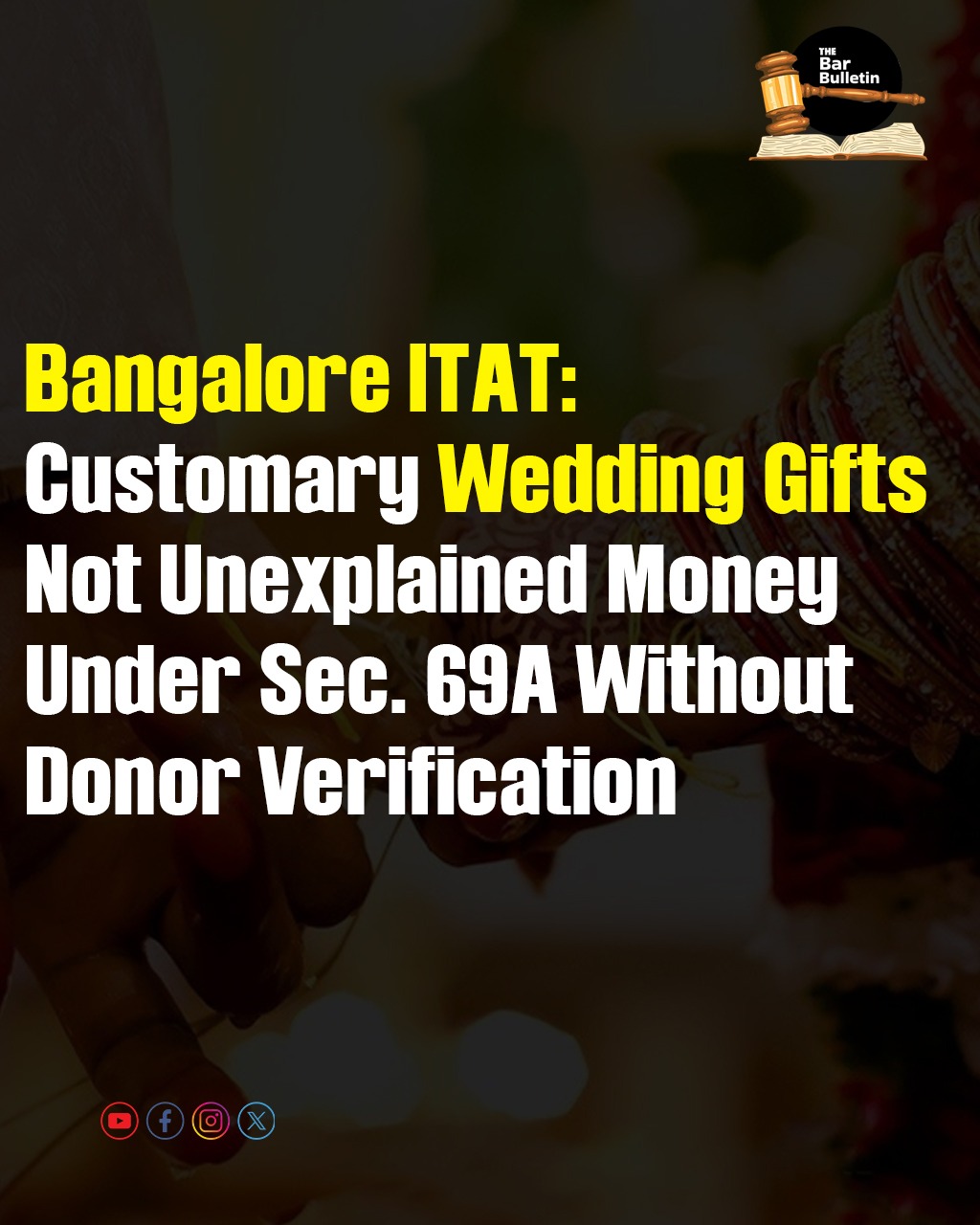The Bangalore ITAT has clarified that the mere absence of receipts or formal confirmations from each donor cannot by itself be a ground to treat the gifts as unexplained money. Hence, the ITAT held that cash deposits out of wedding gifts received during the ceremony are exempted under the second proviso to section 56(2)(vii) of the Income Tax Act, and also there is no requirement in law u/s 56(2)(vii) or under section 69A to establish the identity and creditworthiness of every person who gave a customary wedding gift.
The Division Bench comprising Waseem Ahmed (Accountant Member) and Keshav Dubey (Judicial Member) explained that in Indian society, marriage is a deeply rooted socio-cultural event, where it is customary for family members, relatives, and close friends to offer gifts, including cash, to the bride and groom. It is not unusual for such gifts to be unrecorded and informal, given the personal nature of the relationships and the occasion.
The Bench therefore allowed the appeal in favour of the taxpayer and reiterated that wedding gifts, particularly cash gifts from relatives and friends, cannot be treated as unexplained merely because each donor is not individually verified.
Briefly, in this case, the Appellant, an individual employee, received scrutiny notice from the Income Tax Department for verification of the cash deposit of Rs. 10 lacs during the demonetization period. In response, it was submitted that the deposit was out of cash received as a wedding gift. The AO, however, refuted such a claim and held that the mere filing of a marriage invitation card is not sufficient to explain the nature and sources of the cash deposit. The AO accordingly treated the cash deposit as unexplained money as per section 69A of the Act and added the same to her total income.
Appearances:
CA Krishna Upadhya, for the Appellant
Advocate Ganesh R Ghale, for the Respondent

